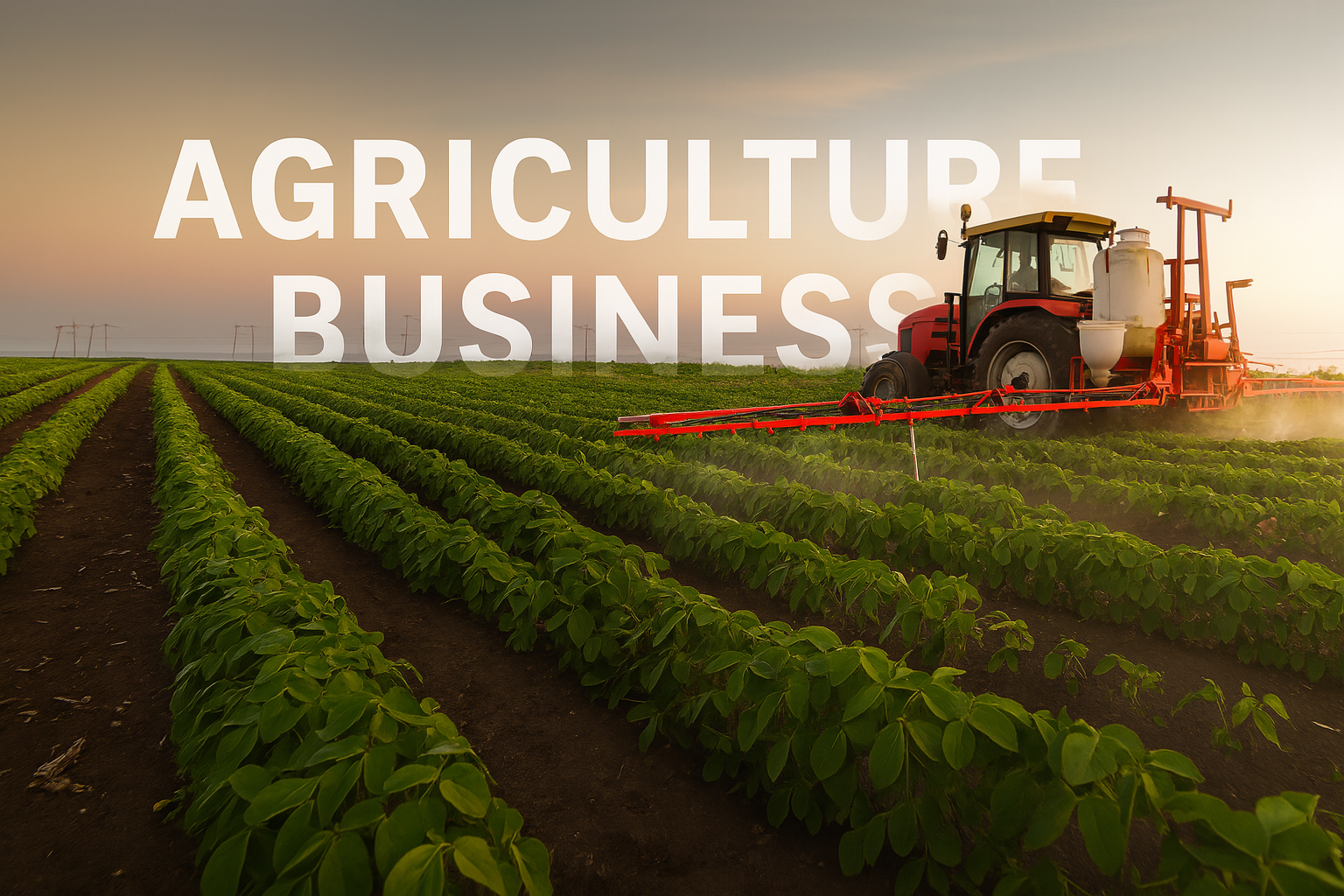- Marketing Strategy: Develop a marketing strategy to reach your target customers, whether through local markets, online platforms, or direct sales.
- Distribution Channels: Establish efficient distribution channels to get your produce to consumers.
- Quality Control: Maintain high quality standards for your produce to ensure consumer satisfaction.
4 easy steps to PAN Application
-
Fill up the Form.
-
Submit the documents.
-
Pay only professional fee.
-
Get your PAN Application.
PROCESS OF STARTING A AGRICULTURE BUSINESS
-
Decide the Type of Agriculture Business
There are multiple types of agriculture businesses you can start; decide which type you are interest in like Crop Cultivation, Livestock Farming, Agribusiness and Processing Units etc.
-
Conduct Market Research
- Study demand for crops/products in your target market.
- Identify potential customers (retailers, wholesalers, food processing companies, exporters).
- Check competition and pricing trends and understand seasonal variations and risks.
-
Choose a Suitable Location & Land
- For Farming – Choose land near water sources, roads, and local markets.
- For Agri Business – Pick a location near highways or processing units for logistics ease.
- Land Lease Option – Consider leasing agricultural land if you have a limited budget.
-
Obtain Licenses & Registrations
- Business Registration: Register your business as Sole Proprietorship, Partnership, LLP, or Private Limited Company.
- GST Registration, FSSAI License, MSME Registration, APEDA Registration, Pollution Control Board Clearance, Seed License etc.
-
Arrange Capital & Funding
- Use personal savings or take loans from banks (SBI, NABARD, ICICI, etc.).
- Apply for Government Subsidies (PM Kisan, Agri-Infrastructure Fund, NABARD schemes).
- Consider Mudra Loans or Kisan Credit Card (KCC) for working capital or Seek investors if you are starting an agritech-based business.
-
Arrange Land and Infrastructure
- Land Selection: Choose fertile land with access to water and good connectivity to markets.
- Leasing vs Buying: If you are starting small, leasing farmland can be a better option.
- Irrigation Setup: Install borewells, drip irrigation, or rainwater harvesting.
- Storage and Processing: Create storage for produce and basic processing units if needed.
-
Build a Sales & Distribution Network
- Sell directly to wholesalers, supermarkets, and restaurants.
- Join online platforms (BigBasket, Ninjacart, DeHaat) to reach more buyers.
- Export through APEDA-registered channels and also Explore contract farming opportunities with companies like ITC, PepsiCo, etc.
-
Marketing & Selling Your Products
- E-Commerce & Online Sales – Register on Amazon, Flipkart, BigBasket, JioMart for direct consumer sales
- Export Business – Export grains, spices, and organic produce.
- B2B Tie-ups – Supply to supermarkets, hotels, food processing units.
- Local Markets & Mandi Sales – Sell directly in APMC Mandis or contract with buyers.
-
Focus on Sustainable & Profitable Farming
- Use crop rotation and companion planting for better yield and Minimize costs with vermicomposting and organic fertilizers.
- Adopt greenhouse, polyhouse, or hydroponic farming for better returns.
- Use technology like IoT sensors for smart farming.

TYPES OF AGRICULTURE BUSINESS
CROP CULTIVATION
When plants of the same species are cultivated in rows or other systematic arrangements, it is called crop field or crop cultivation.
Types of Crop Cultivation:
- Organic Farming – Growing organic vegetables, fruits, or grains.
- Horticulture – Growing fruits, flowers, and vegetables.
- Herbal and Medicinal Plant Farming – Cultivating tulsi, aloe vera, ashwagandha, etc.
- Mushroom Farming – Low investment, high returns.
- Greenhouse Farming – Growing crops in a controlled environment.
- Hydroponics/Aquaponics Farming – Soil-less farming techniques.
LIVESTOCK FARMING
Livestock farming, a core part of agriculture business, Livestock farming involves raising animals for products like meat, milk, and eggs, wool, and leather.
Types of Livestock Farming:
- Dairy Farming – Cow, buffalo, or goat milk production.
- Poultry Farming – Chicken, duck, and quail farming.
- Goat Farming – Meat and milk production.
- Sheep Farming – Wool and meat business.
- Pig Farming – High-profit livestock farming.
- Fish Farming (Aquaculture) – Rearing fish like Rohu, Katla, or Prawns.
AGRIBUSINESS AND PROCESSING UNITS
Agribusiness encompasses all activities related to agriculture, from production to processing, distribution, and marketing of agricultural products, while processing units within agribusiness involve transforming raw agricultural products into marketable finished goods
Types of Agribusiness and Processing Units:
- Food Processing – Making pickles, jams, juices, or ready-to-eat foods.
- Spice Processing – Grinding and selling spices like turmeric, coriander, etc.
- Oil Extraction Unit – Producing mustard oil, coconut oil, or groundnut oil.
- Cold Storage Business – Storing perishable farm produce.
AGRITECH AND MODERN AGRICULTURE BUSINESS
Agritech and modern agriculture business, or agribusiness, involves applying technology and business principles to optimize agricultural practices like automation, biotechnology, information monitoring, and data analysis.
Types of Agritech and Modern Agriculture Business:
- Agro Consultancy – Advising farmers on modern farming techniques.
- Agri Equipment Rental – Renting tractors, plows, and harvesters.
- Online Agricultural Marketplace – Selling agricultural products online.
AGRICULTURAL BYPRODUCTS AND WASTE UTILIZATION
Agricultural byproducts and waste, encompassing everything from crop residues to animal waste, offer a wealth of opportunities for sustainable agriculture and business development by turning waste into valuable resources.
Types of Agricultural Byproducts and Waste Utilization:
- Vermicomposting – Producing organic manure.
- Biogas Production – Converting cow dung into biogas.
- Fly Ash Brick Manufacturing – Using agricultural waste.
AGRO-BASED TRADING AND DISTRIBUTION
Agro-based trading and distribution encompasses the entire agricultural value chain, from production to consumer, including processing, marketing, and distribution of agricultural products.
Types of Agro-based Trading and Distribution:
- Fertilizer and Pesticide Business – Selling agricultural inputs.
- Seed Distribution Business – Selling hybrid and organic seeds.
- Export of Agricultural Products – Trading Indian crops globally.
REQUIREMENT OF AGRICULTURE BUSINESS
MARKETING & DISTRIBUTION
FARMING OPERATIONS & KNOWLEDGE
- Farming Expertise: Develop or acquire the necessary knowledge and skills in crop cultivation, livestock management, pest control, and soil management.
- Best Practices: Implement best farming practices for sustainable and efficient production.
- Market Knowledge: Understand market trends, consumer preferences, and potential buyers for your produce.
LAND AND LOCATION
- Land Availability – Depending on the type of agriculture business (crop farming, dairy, poultry, etc.), you need land.
- Soil Quality & Climate – Test soil fertility and check climate suitability for the chosen crops or livestock.
- Water Supply – Borewells, ponds, or irrigation systems are essential.
EQUIPMENT & MACHINERY
- Farming Tools – Tractors, plows, seed drills, irrigation systems, etc.
- Storage & Processing Units – If you plan to store or process produce.
- Cold Storage – Required for perishable products like dairy, vegetables, and fruits.
WORKFORCE & TRAINING
- Skilled Labor – Workers for planting, harvesting, and packaging.
- Training & Modern Techniques – Hydroponics, organic farming, and greenhouse techniques can boost productivity.
SUPPLY CHAIN & MARKET
- Buyers & Market Demand – Identifying wholesale buyers, local markets, or export opportunities.
- Logistics & Transport – Vehicles for product delivery.
- Online & Offline Sales – Selling through mandis, supermarkets, or online platforms.
DOCUMENT FOR AGRICULTURE BUSINESS
FSSAI LICENSE
For agricultural businesses in India, an FSSAI license is a mandatory certification ensuring food safety and quality, covering activities like manufacturing, processing, storage, distribution, and sale of food products. If you are involved in manufacturing, storing, distributing, or selling food products (including agricultural products), you need an FSSAI license or registration. It’s crucial for compliance with the Food Safety and Standards Act, 2006, boosting consumer trust and enabling market expansion.
ENVIRONMENTAL CLEARANCE
In India, environmental clearance for agriculture businesses, under the Environment Impact Assessment (EIA) Notification of 2006, is a mandatory process to assess and mitigate potential environmental impacts of projects. This involves assessing the potential harm to the environment and ensuring mitigation measures are in place before project commencement. The purpose of EC is to ensure that development activities do not negatively impact the environment or human health. It serves as a legal consent for projects that could be harmful to the environment.
APEDA REGISTRATION
APEDA (Agricultural and Processed Food Products Export Development Authority) registration is mandatory for businesses involved in exporting agricultural and processed food products from India, ensuring compliance with international standards and facilitating access to various benefits and schemes. APEDA registration is a certificate that allows Indian companies to export agricultural and processed food products to other countries.
TRADE LICENSE
A trade license for an agriculture business in India, issued by the Municipal Corporation, ensures legal compliance, allows for smooth business operations, and builds trust with customers and authorities, protecting your business from penalties and closure. The agricultural board trade licences help in making the trading organised, transparent and efficient. Farmers can trade their agricultural products freely without the fear of market rate fluctuations, transportation and storage costs.
PESTICIDE/FERTILIZER LICENSE
businesses involved in agriculture, particularly those dealing with pesticides and fertilizers, require specific licenses to ensure safe and regulated operations, which are managed by the Ministry of Agriculture and Farmers’ Welfare. To ensure the controlled use of pesticides to prevent environmental and human harm.
MSME REGISTRATION
MSME (Micro, Small, and Medium Enterprise) registration, also known as Udyam registration, is for businesses in India, including those in agriculture, to gain recognition as an MSME and access government benefits and incentives. particularly for traders and distributors of agricultural inputs, is a crucial step for accessing benefits like loans, tax exemptions, and incentives.
STATE AGRICULTURAL MARKETING BOARD LICENSE
In India, State Agricultural Marketing Boards, or Agricultural Produce Market Committees (APMCs), are state-level bodies regulating agricultural marketing, ensuring fair prices and protecting farmers from exploitation by large retailers, operating under state-specific Agriculture Produce Marketing Regulation (APMR) Acts.
SEED LICENSE
To operate a seed business (selling, exporting, or importing seeds) in India, you need a seed license from the relevant licensing authority. In India, a seed license for agricultural businesses is crucial for ensuring quality and regulating the sale, import, and export of seeds, ultimately supporting food security and agricultural productivity.
BIS CERTIFICATE
In the context of Indian agriculture businesses, a BIS certificate, or Bureau of Indian Standards certificate, signifies that a product or service meets specific Indian standards for quality, safety, and reliability, ensuring consumer protection and market access.
Why us
Recognized by Govt. of India
End-to-End Financial & Compliance Solutions
ISO Certified
Data Security & Confidentiality
Trained & Professional Team
On Time, Every Time - We Respect Deadlines
Technology Driven
Transparent & Ethical Practices
Support for Startups & MSMEs
Compare with other Agriculture Business
Pick a Business Structure That Works Best For Your Business
- Initial Investment
- Land Requirement
- Technical Expertise
- Government Regulations
- Profit Margin
- Market Demand
- Risk Factor
- Time to Break Even
- Labor Requirement
- Sustainability
- Technology Usage
Here are some Frequently Asked Questions about Agricultural Businesses
Can I start an agricultural business on leased land?
Yes, agricultural businesses can be operated on leased land, but you must have a valid lease agreement and check land-use regulations in your state.
How do I market my agricultural products?
- Sell in local APMC mandis
- Use e-commerce platforms (Amazon, Flipkart, BigBasket, etc.)
- Register on e-NAM (National Agriculture Market)
- Direct selling to consumers via Farmer’s Markets
- Tie-up with supermarkets, food processing companies
- Export to international markets
What are the challenges faced in the agricultural business?
- Climate dependency and unpredictable weather
- Lack of proper infrastructure and storage facilities
- Market fluctuations and pricing issues
- Limited access to technology and mechanization
- High cost of inputs (seeds, fertilizers, etc.)
Can I use my agricultural land for non-agricultural business?
Agricultural land cannot be used for commercial purposes unless converted through state government permissions under land-use conversion laws.
. What are the tax benefits for agricultural businesses in India?
- Income from agriculture is exempt from income tax
- No GST on raw agricultural produce
- Subsidies on farm equipment and inputs
Leave Your Accounting to Us and File GST Accurately.
Save time, money, and taxes with our AI based Business softwares and expert accountants.
















